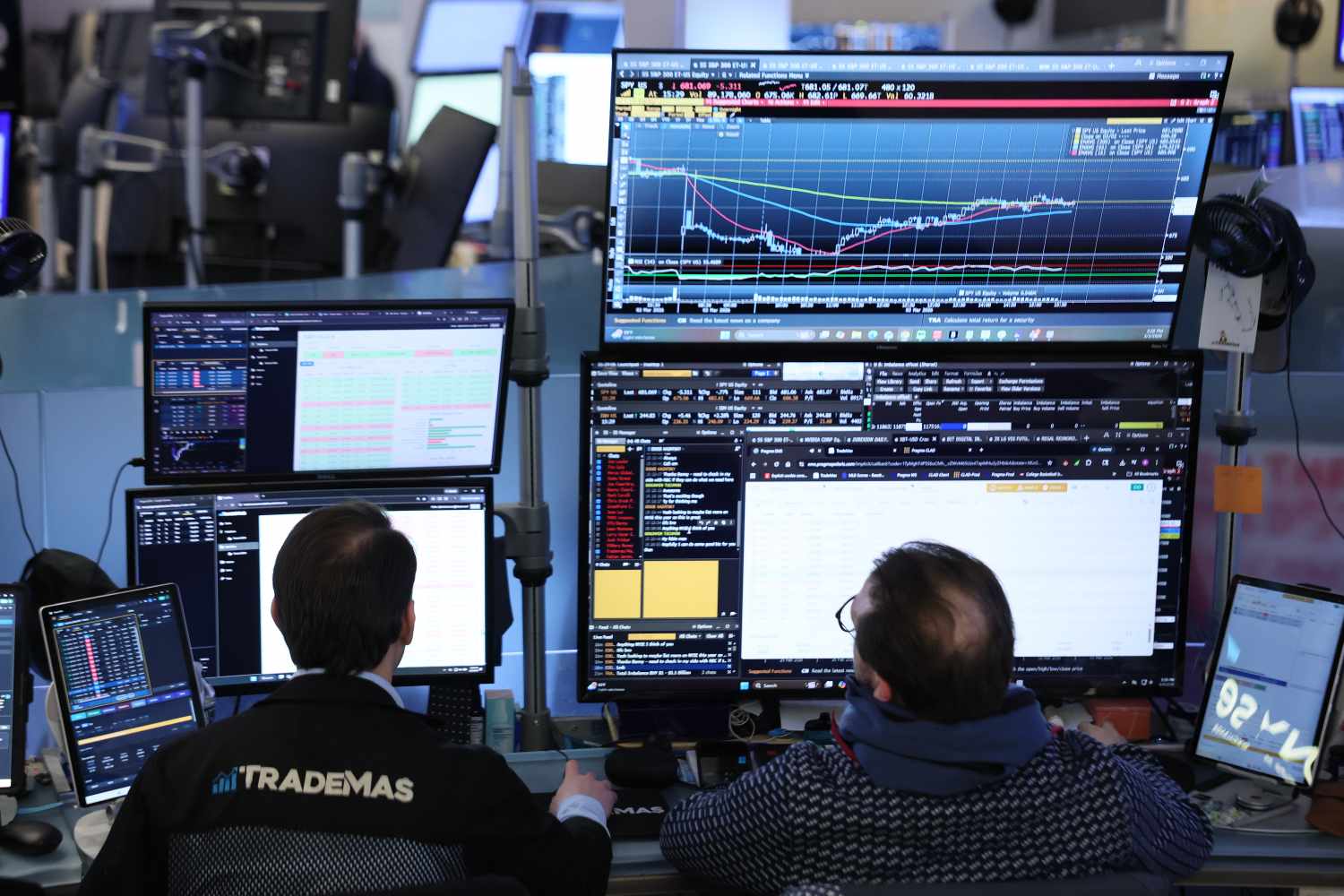News of the day for March 5, 2024
Shelby Knowles / Bloomberg / Getty Images
Target (TGT) shares were moving sharply higher in premarket trading Tuesday after the retailer reported strong quarterly results, while shares of Gitlab (GTLB) were tumbling as its guidance came in short of expectations. Apple’s (AAPL) iPhone sales in China, its biggest overseas market, have plunged to start the year, while Chinese officials have set an ambitious 5% annual economic growth target. U.S. stock futures are pointing lower, bitcoin is down after closing in on its high and gold is hovering near its all-time high. Here’s what investors need to know today.
1. Target Soars as Holiday-Quarter Earnings Beat Offsets Weak Sales Forecast
Target (TGT) shares surged more than 8% in premarket trading Tuesday after the retailer reported higher-than-expected fiscal fourth-quarter results and ended a streak of falling sales. The Minneapolis-based retailer said earnings per share for the holiday quarter ending Feb. 4 were $2.98, well above analysts’ forecasts of $2.41 a share, and almost 60% higher than the year before. Revenue gains were more modest, up 1.7% at $31.9 billion, but beat forecasts of $31.4 billion and also came after falling sales in the two previous quarters. The results offset weak guidance from the retailer, which said it expects current-quarter declines in sales of between 3% and 5%.
2. China Sets Ambitious 5% Annual Growth Target
China set an economic growth target of around 5% for the year, a goal economists say is ambitious and will require the nation to unleash more stimulus in a country battling a real estate downturn and deflation. This year’s goal, announced Tuesday by Premier Li Qiang at the start of the country’s annual legislative session, is higher than the International Monetary Fund’s and World Bank’s estimates for Chinese growth this year, and same as last year’s target. Even with the post-Covid rebound last year, however, the government had to roll out a series of stimulative measures to meet its target.
3. Apple Falls as China Sales Keep Slumping, EU Fine Weighs
Apple (AAPL) shares fell more than 2% in premarket trading as market-research firm Counterpoint said iPhone sales in China, the company’s biggest overseas market, fell by 24% over the first six weeks of this year. The iPhone maker, which recently said its greater China sales in its December quarter were down 13%, has been rolling out rare discounts on its device in the country to pump up demand. The report comes a day after the European Union fined Apple about $2 billion saying the iPhone maker had violated antitrust rules by restricting app developers from telling users about alternative ways to subscribe to music-streaming services. Apple shares are down 6% this year, while Microsoft (MSFT), which is leading the artificial intelligence race through its ongoing partnership with ChatGPT maker OpenAI, has overtaken it in terms of market value.
4. AMD Reportedly Fails to Get Clearance for China Chip Sales
Advanced Micro Devices (AMD) reportedly failed to make the artificial intelligence chip it tailored for the Chinese market weak enough to be sold without a license from the Commerce Department, dealing a setback for the chipmaker. AMD had hoped to receive a green light from the Commerce Department to sell the AI processor to Chinese customers as it performs at a lower level than what AMD sells outside of China, Bloomberg News reported, citing people familiar with the situation. AMD shares were off about 1.5%.
5. GitLab Plunges as Guidance Undershoots Expectations
GitLab (GTLB) shares plunged nearly 25% in premarket trading, after the software infrastructure company disappointed investors with weak full-year earnings guidance. The San Francisco-based company, which operates an open-source repository development platform for coders, said it expects full-year fiscal 2025 adjusted earnings of between 19 and 23 cents per share, with the high end of that forecast well below Wall Street’s expectations.
Investopedia requires writers to use primary sources to support their work. These include white papers, government data, original reporting, and interviews with industry experts. We also reference original research from other reputable publishers where appropriate. You can learn more about the standards we follow in producing accurate, unbiased content in our editorial policy.















